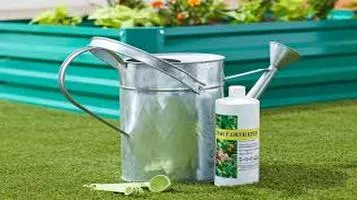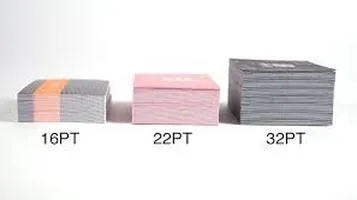Fish Emulsion: The Organic Fertilizer Your Garden Needs
Fish emulsion is an organic liquid fertilizer derived from the byproducts of fish processing, primarily fish oil and fish meal. It's favored by gardeners and farmers for its rich nutrient content, including essential elements like nitrogen, phosphorus, and potassium, which promote healthy plant growth. The emulsion also contains trace minerals and beneficial microorganisms that enhance soil fertility and improve plant resilience. Its liquid form allows for easy application, either by watering directly onto the soil or using foliar sprays. Fish emulsion is prized for its ability to quickly supply nutrients, making it ideal for vegetable gardens, flowers, and lawns. Additionally, its natural origin and biodegradability make it an environmentally friendly option for sustainable agriculture practices.

Fish emulsion, a nutrient-rich organic fertilizer, has been a staple in agricultural practices for centuries. Derived from the byproducts of fish, such as bones, scales, and skin, it is processed into a liquid form that can be easily applied to plants. As more gardeners and farmers shift towards sustainable and eco-friendly practices, fish emulsion has gained renewed interest. This review delves into the advantages, drawbacks, and practical applications of fish emulsion, providing a comprehensive understanding of its role in modern gardening.
Advantages of Fish Emulsion
1. Nutrient-Rich Composition: One of the primary benefits of fish emulsion is its nutrient profile. It typically contains a balanced mix of essential nutrients such as nitrogen, phosphorus, and potassium, along with trace minerals like calcium, magnesium, and sulfur. These nutrients are critical for healthy plant growth, supporting everything from root development to flowering and fruiting.
2. Organic and Eco-Friendly: Fish emulsion is an organic fertilizer, making it an excellent choice for those committed to sustainable gardening practices. Unlike synthetic fertilizers, fish emulsion is biodegradable and does not contribute to soil and water pollution. Its use helps maintain a healthy ecosystem, promoting biodiversity and reducing the carbon footprint associated with chemical fertilizers.
3. Improves Soil Health: Regular application of fish emulsion can enhance soil structure and fertility. The organic matter in the emulsion fosters microbial activity, which in turn helps decompose organic matter and release nutrients. This symbiotic relationship between plants and soil microbes results in healthier, more resilient plants.
4. Quick Nutrient Absorption: Fish emulsion is known for its rapid nutrient absorption. When applied as a foliar spray, nutrients are quickly taken up by the leaves and transported throughout the plant. This makes it particularly useful for addressing nutrient deficiencies and providing a quick boost during critical growth stages.
5. Versatility: Fish emulsion can be used on a wide variety of plants, including vegetables, fruits, flowers, and shrubs. It can be applied as a soil drench or foliar spray, making it a versatile addition to any gardening routine. Additionally, it is suitable for both indoor and outdoor plants, making it a handy tool for all types of gardeners.
Drawbacks of Fish Emulsion
1. Odor: One of the most commonly cited drawbacks of fish emulsion is its strong, fishy odor. While the smell dissipates relatively quickly after application, it can be off-putting for some gardeners. Choosing a well-ventilated area for mixing and application can help mitigate this issue.
2. Cost: Compared to synthetic fertilizers, fish emulsion can be more expensive. This is due to the processing required to convert fish byproducts into a usable form. However, many gardeners find the benefits outweigh the cost, especially when considering the long-term health of their soil and plants.
3. Potential for Overuse: Like any fertilizer, fish emulsion must be used correctly to avoid potential damage to plants. Over-application can lead to nutrient burn, where excessive nutrients cause harm rather than benefit. Following recommended application rates and schedules is crucial to prevent this issue.
Practical Applications
1. Vegetable Gardens: Fish emulsion is particularly beneficial for vegetable gardens. Its balanced nutrient profile supports the rapid growth and development of vegetables, ensuring a bountiful harvest. Applying fish emulsion every two to three weeks during the growing season can provide consistent nutrition.
2. Flower Beds: For ornamental plants and flowers, fish emulsion can enhance blooming and improve overall plant health. A foliar spray application every few weeks can help maintain vibrant, healthy flowers.
3. Indoor Plants: Indoor plants can also benefit from fish emulsion. A diluted solution applied every month can provide essential nutrients that may be lacking in potting soil, promoting lush, green foliage and healthy growth.
4. Compost Piles: Adding fish emulsion to compost piles can accelerate the decomposition process. The nutrients in the emulsion feed the microbes responsible for breaking down organic matter, resulting in rich, fertile compost.
Conclusion
Fish emulsion stands out as a powerful, organic fertilizer that offers numerous benefits for gardeners and farmers. Its nutrient-rich composition, eco-friendly nature, and ability to improve soil health make it a valuable addition to any gardening toolkit. While the odor and cost may be minor drawbacks, the overall advantages of using fish emulsion far outweigh these concerns. By incorporating fish emulsion into your gardening routine, you can promote healthier plants, support sustainable practices, and enjoy a more bountiful and beautiful garden.






